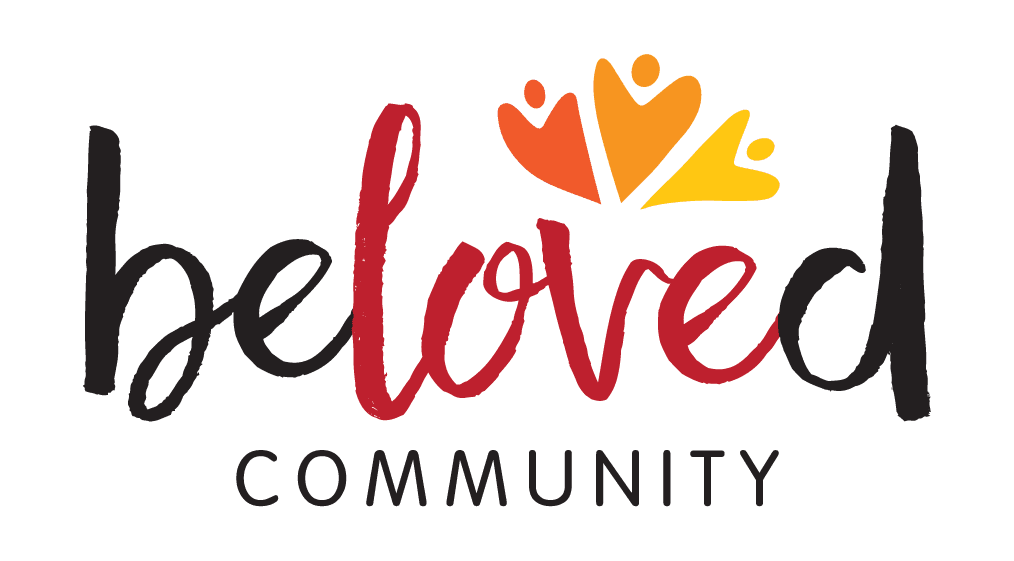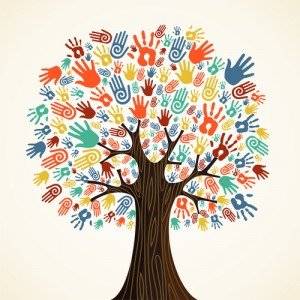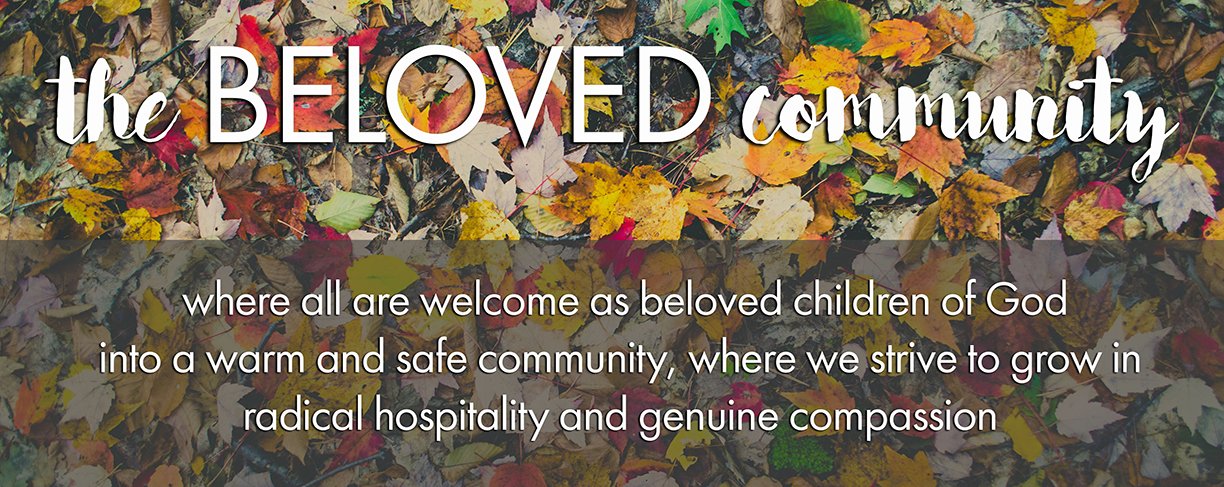|
The Beloved Community
by Captain Charles
Roberts

Text - Jeremiah 29:1-7, 11
The historical setting here is Babylon, the
great evil nation, teeming with foreign gods. After much
defending in vain, the people of Israel were captured and sent
to this foreign land in 722 BC. They were teased and taunted,
tortured and tormented. They were isolated and indentured as
slaves to the new great political power. The once all-powerful
nation of ISR has slid down the slope of compromise until they
have become a byword.
We get this glimpse of the Babylonian
Captivity through the recording of the nation's pathos:
By the rivers of Babylon we sat and wept
when we remembered Zion.
There on the poplars
we hung our harps,
for there our captors asked us for songs,
our tormentors demanded songs of joy;
they said, “Sing us one of the songs of
Zion!”
How can we sing the songs of the Lord
while in a foreign land? (Psalm 137:1-4)
Previously the prophet had declared a time
of mourning and repentance, but now Jeremiah takes a different
approach; he declares a love revolution. To change the city
now means to bless the city.
But we serve a God who turns tragedy into
triumph, and makes true to His promise:
"Yes, there will be an abundance
of flowers and singing and joy! The deserts will become as
green as the mountains of Lebanon, as lovely as Mount Carmel
or the plain of Sharon. There the LORD will display his glory,
the splendor of our God." (Isaiah 35:2)
Just as Elijah saw a cloud the sign of a man's hand
during drought, in the midst of despair, we see a Beautiful
City.
"One of the first steps in turning tragedy into triumph is to accept the
situation courageously and put ourselves into the hands of a
loving God, who makes no mistakes. "
Wiersbe, W. W. (1996). Be Decisive (pp.
123–124). Wheaton, IL: Victor Books.
Jeremiah gives a set of instructions that
seem to confound what he has said before.
But the prophet is the weather vane, he
knows which way the wind of the Spirit is blowing.

Because of the goodness of God and the
impending release from exile those in captivity, exiles can
again make plans; previously Jeremiah refrains from marriage,
because the refugees were on alert, and normal activities were
a distraction for paying full attention. But now, the prophet
is instructing the people to marry, to multiply, to see the
peace and prosperity - we can again make plans, because the
Lord has plans for us, plans to help us and not to harm us,
plans to give us a hope and a future. The phrase translated
bring you back from captivity is richer than this suggests,
implying the full restoration of life in all its dimensions.
Build. Plant. Marry. Habitate. Multiply.
Bless. Prosper. In the city.
Do and be the things that makes us to become
the change we desire.
The Beautiful Community is a well-watered
garden, in the midst of the deserted of the generations, to
whom we have been called.
The Beautiful Community (or Beloved
Community):
For Dr. King, The Beloved Community was not a lofty utopian goal to be
confused with the rapturous image of the Peaceable Kingdom, in
which lions and lambs coexist in idyllic harmony. Rather, The
Beloved Community was for him a realistic, achievable goal
that could be attained by a critical mass of people committed
to and trained in the philosophy and methods of nonviolence.
Dr. King’s Beloved Community is a global vision, in which all people can
share in the wealth of the earth. In the Beloved Community,
poverty, hunger and homelessness will not be tolerated because
international standards of human decency will not allow it.
Racism and all forms of discrimination, bigotry and prejudice
will be replaced by an all-inclusive spirit of sisterhood and
brotherhood. In the Beloved Community, international disputes
will be resolved by peaceful conflict-resolution and
reconciliation of adversaries, instead of military power. Love
and trust will triumph over fear and hatred. Peace with
justice will prevail over war and military conflict.
Dr. King’s Beloved Community was not devoid of interpersonal, group or
international conflict. Instead he recognized that conflict
was an inevitable part of human experience. But he believed
that conflicts could be resolved peacefully and adversaries
could be reconciled through a mutual, determined commitment to
nonviolence. No conflict, he believed, need erupt in violence.
And all conflicts in The Beloved Community should end with
reconciliation of adversaries cooperating together in a spirit
of friendship and goodwill.
As early as 1956, Dr. King spoke of The Beloved Community as the end
goal of nonviolent boycotts. As he said in a speech at a
victory rally following the announcement of a favorable U.S.
Supreme Court Decision desegregating the seats on Montgomery’s
busses, “the end is reconciliation; the end is redemption; the
end is the creation of the Beloved Community. It is this type
of spirit and this type of love that can transform opponents
into friends. It is this type of understanding goodwill that
will transform the deep gloom of the old age into the
exuberant gladness of the new age. It is this love which will
bring about miracles in the hearts of men.”
An ardent student of the teachings of Mohandas K. Gandhi, Dr. King was
much impressed with the Mahatma’s befriending of his
adversaries, most of whom professed profound admiration for
Gandhi’s courage and intellect. Dr. King believed that the
age-old tradition of hating one’s opponents was not only
immoral, but bad strategy which perpetuated the cycle of
revenge and retaliation. Only nonviolence, he believed, had
the power to break the cycle of retributive violence and
create lasting peace through reconciliation.
In a 1957 speech, Birth of A New Nation, Dr. King said, “The aftermath
of nonviolence is the creation of the beloved community. The
aftermath of nonviolence is redemption. The aftermath of
nonviolence is reconciliation. The aftermath of violence is
emptiness and bitterness.” A year later, in his first book
Stride Toward Freedom, Dr. King reiterated the importance of
nonviolence in attaining The Beloved Community. In other
words, our ultimate goal is integration, which is genuine
inter-group and inter-personal living. Only through
nonviolence can this goal be attained, for the aftermath of
nonviolence is reconciliation and the creation of the Beloved
Community.
"The gospel of Jesus is good news in the
city. Sin, death and evil have been defeated by Jesus through
the cross and the empty tomb. Jesus is not just defeating. He
is recreating, making all things new. This is good news in the
cities of unfulfilled promise, hope deferred, and expectation
of complete restoration. This good news is what every mayoral
candidate promises but only Jesus delivers: not only a new
city, but a new humanity.
This gospel is power of God unto salvation, and offers
redemption,
restoration, and renewal.
The city is the metro/polis - the
world-centre: cultural, relational, industry & art,
neighborhood & institutions merge in a grand symphony of
progress. Cities are also the place where the downtrodden are
abandoned, where alienation has reigned supreme.
But we serve a High Priest, who is not
unaware of our weaknesses, who constantly intercedes for us at
the right hand of God. We serve One who knows suffering well,
yet knows what victory looks like.
His death paid our bail, and the empty tomb broke us
out of jail, so that we can live in complete freedom, complete
liberty, the salvation of our souls.
God loves cities. Because of Christ, cities
are places of hope.
We hold this hope in Christ as an anchor of the soul.
Hope, true hope in Christ keeps us buoyant in the midst of
rogue waves of cultural change, navigating our souls to praise
through the pain, persevere, and be the "more than conquerors
through Him who loves us."
Without the truths of Christ's life, death
and resurrection infused in the life of the city, the
metropolis is destined to drift into greater and greater
desolation, while the rich become richer and the poor become
poorer.
Because of what Jesus has done, we are a
third-day people, recipients of the resurrection, and
possessed by the Holy Spirit, who makes into an Isaiah 61
people.
1.Redemption - (vs. consumeristic)
2.Restoration - (vs. individualistic)
3.Renewal - (vs. materialistic)
Yet, as the church, as the repository of the
faith once for all given to the saints, we have to confront
and bring down our own idols - idols of N. American culture,
idols hiding in our institutions, idols ensconced in fear;
because for many seeking the peace and prosperity of the city
can be viewed as friendship with the world, which is enmity
with God. We become afraid about losing our counter-cultural
edge; guess what sports fans, we already have!
But in seeking to bless the city, to bring
light to the metropolis, we partner on big-ticket items that
the city fathers care about, those that everyone cares about,
without losing our witness to the supremacy of Christ, then
the gospel that is displayed is rendered as relevant. If you
don't respect the culture, they will never hear the message of
the Gospel. (Jim Knaggs). Culture eats strategy for breakfast,
so culture must be exegeted much like the Scriptures, using
hermenuetical principles.
Internally, the Beautiful Community is a
tribe of Jesus-followers who gather around worship, Word, care
and mission, building upon the apostles and prophets with the
finished work of Jesus Christ as the cornerstone of our faith.
Externally, the Beautiful Community radiates
the glory of Jesus, adoring Him, and imitating His acts in the
earth.
1. Living with radical abandonment for His
glory (Luke 14:33; Luke 9; Matthew 10)
2. Joyful dependence upon His grace (John
15; Matthew 4; Ephesians 1)
3. Faithful adherence to Jesus; a reflexive
obedience, fruit of a spiritual formation and holy habits
("follow me," "come and see," go and tell.")
4. Lives with urgent obedience to His
mission (Matthew 28; Ephesians 2:8-10; etc.)

John Wesley, who founded the Methodist
movement, wrote, “One of the principle rules of religion is to
lose no occasion of serving God. And since he is invisible to
our eyes, we are to serve him in our neighbor; which he
receives as if done to himself in person, standing visibly
before us.”
To become this Beautiful Community, we all
need a return to first things, and much as Micah had done, He
has shown you, O mortal, what is good.
And what does the Lord require of you? To act justly
and to love mercy and to walk humbly[a] with your God"
Love God, love people. The rest is
wallpaper. This is the essence of the Beautiful Community. And
now, we must appeal to God, Who alone makes things beautiful,
in His time.
If not now, when? If not who, you?
"Holy One, you have called us out of
darkness into Your wonderful Light, the Light of Life. You
call us out of captivity into the freedom of your beloved
community. As we pass through the wilderness spaces of our
lives, grant us ears to hear you, eyes to see you, and hearts
that ache for you, that we might not turn away from the
brothers and sisters who help us remember who we are. Amen."
|